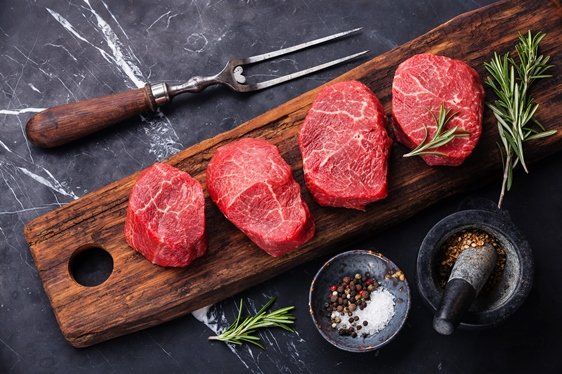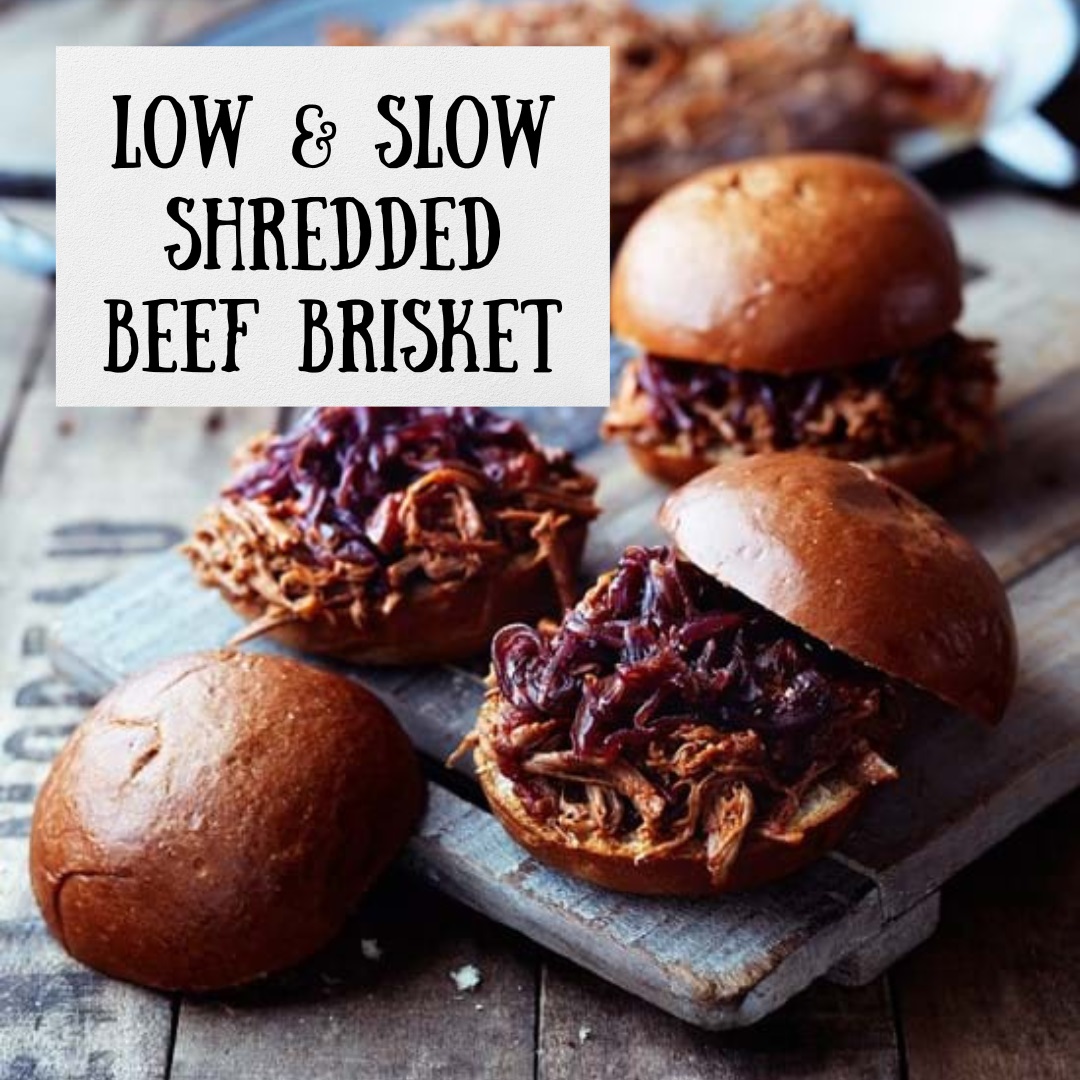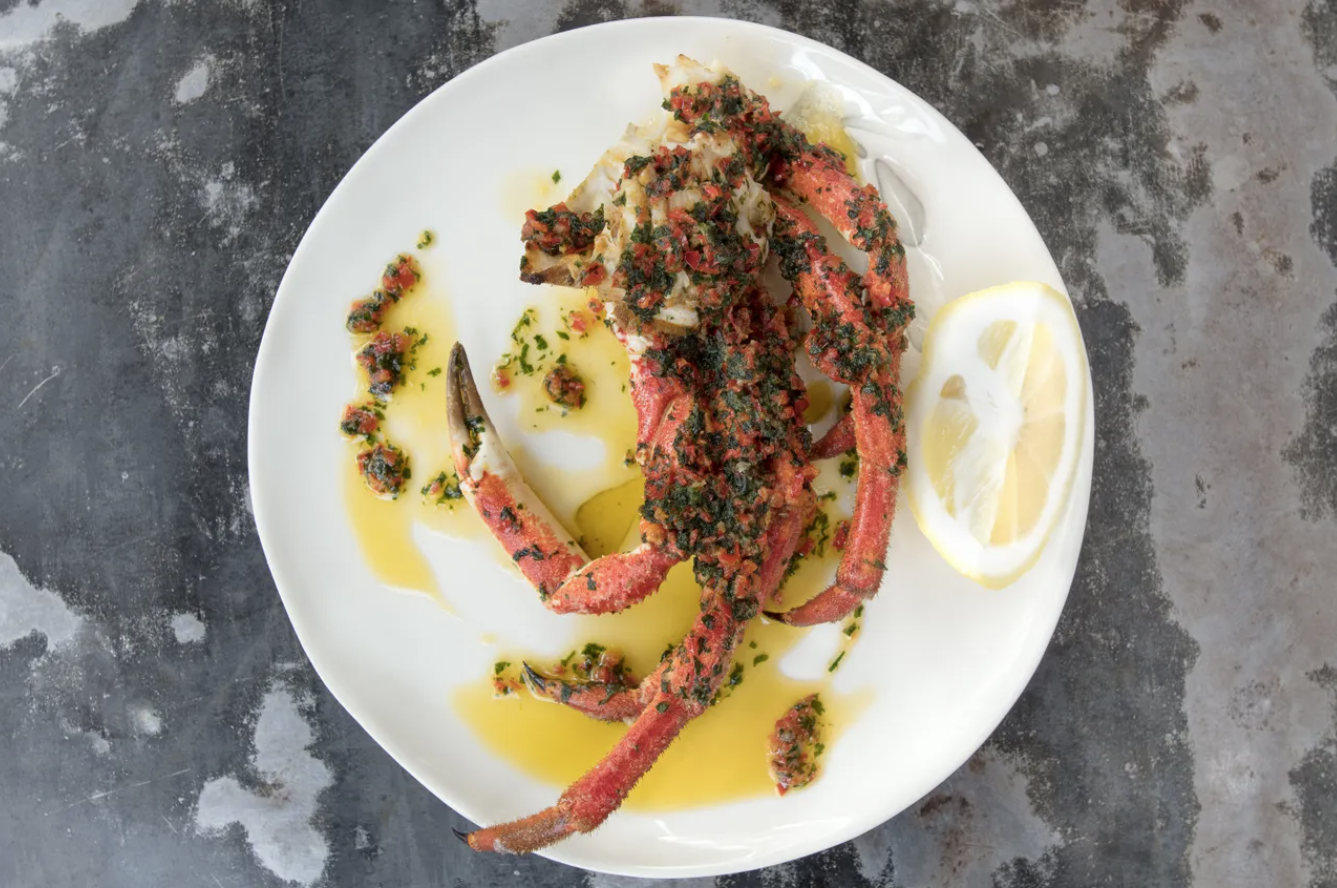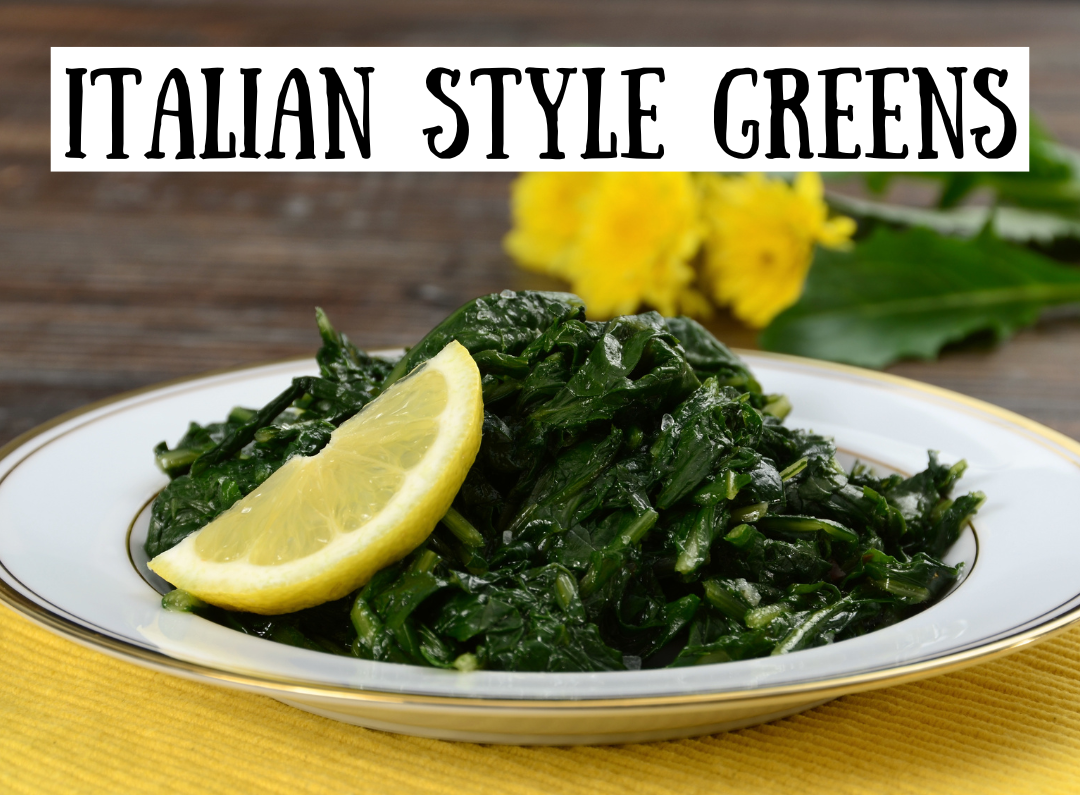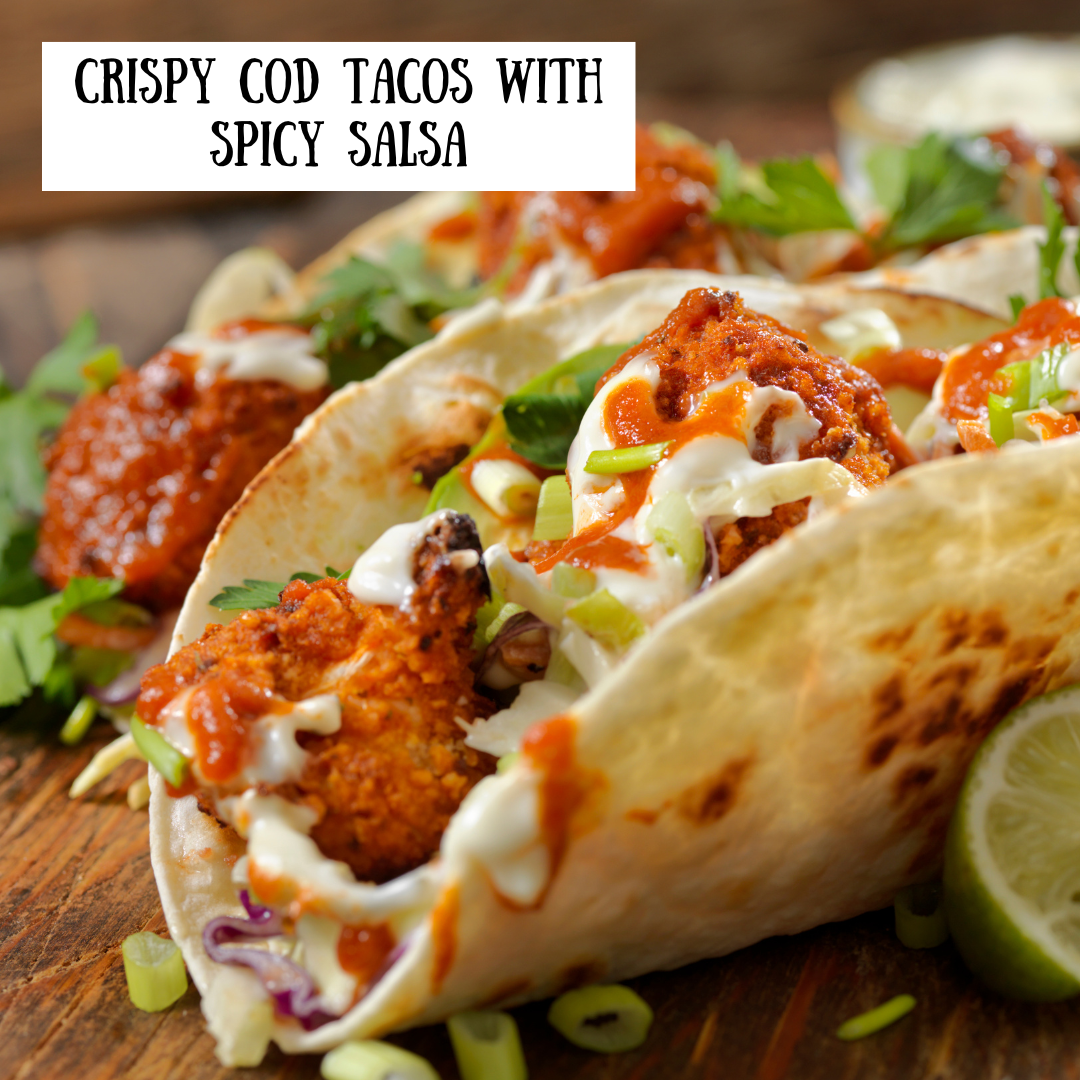Concerned about the impacts of eating beef on your health & the environment? Read on for all the facts.
Eating beef has got a bad press in recent years due to concerns over environmental impacts, welfare standards, and health concerns. However not all beef production around the world is the same. In the UK cattle being raised for beef are grazed which means we have extensive pasture areas that provide habitats for wildlife, and when actively managed are very effective in taking carbon dioxide from the atmosphere and storing it. This method of raising cattle means the meat produced is a rich source of essential nutrients that can be hard to get from other sources. In addition the UK has some of the highest standards in welfare ranking in the top 3 in the Animal Protection Index.
The UK's beef industry has an international reputation for quality and is renown for its rich heritage. Here in Cornwall we have fantastic prime beef production with much of it supplied to top restaurants both within Cornwall and across the UK. The long grass growing season combined with the traditional breeds used for beef farming results in a superb quality meat. Our beef at the Cornish Food Box Company is selected and prepared by the highly regarded James Kittow's Butchers of Kilhallon for all our orders.
What impact does beef farming have on greenhouse gas emissions?
Agriculture as a whole makes up 10% of greenhouse gas emissions in the UK with cattle & sheep farming accounting for about 5.7% of the total; far behind the impacts of transport, energy supply and business use. Sequestration in pastures also takes carbon out of the atmosphere meaning all livestock grazing only contributes 4.9% of UK emissions. The UK method of raising cattle on extensive grasslands means greenhouse gas emissions from beef produced in the UK is about half the global average.
Is beef farming bad for the environment?
Central to the superiority of British beef is the emphasis on grass-fed diets for cattle. The landscapes of the UK offer a bounty of nutrient-rich grasses, which form the primary source of sustenance for grazing livestock. This natural diet not only enhances the flavour profile of the meat but also contributes to its superior texture and marbling. Around 70% of a typical British beef cattles' diet is made up of grass with grains only contributing around 5%.
In some areas livestock grazing is critical to the lifecycle of wildlife. For instance both the Large Blue Butterfly and the Chough depend on livestock grazing to maintain the open habitats they depend on. Regenerative farming with the introduction of herbal lays, mob grazing, and use of livestock in arable crop rotations all contribute to soil health and fertility with the very best livestock farms actually storing more carbon than they produce.
In terms of water usage only 0.4% of the water used to rear beef cattle is from the tap. 84.4% of the water used is rainfall on to grasslands to grow grass - so essentially unavailable for other uses. Many farmers are taking measures to mitigate the impacts of cattle manure, and use of technologies such as anerobic digestion contributes to producing renewable energy to power homes.
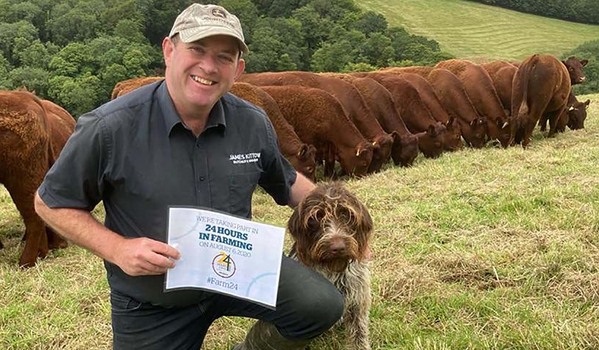
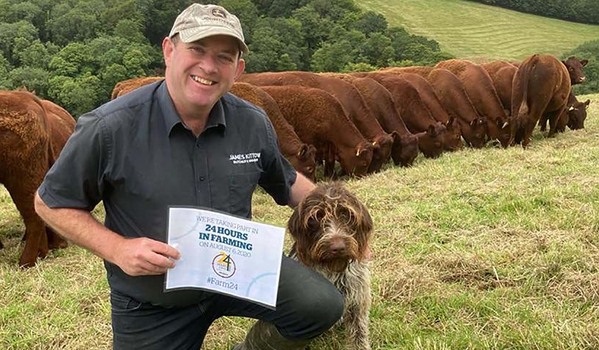
Is eating beef bad for your health?
Red meat is a significant source of protein as well as being one of the richest sources of essential nutrients such as vitamin B12, vitamin D, potassium, selenium, zinc and iron. The nutrients in red meat are far more bioavailable than many other food sources, and eating red meat can help your body absorb these important minerals. Red meat is naturaly low in salt and of course as a natural product does not contain the ultra processed ingredients contained in many meat substitute products.
Isn't beef full of hormones & antibiotics?
In an age where consumers prioritise sustainability and ethical sourcing, British beef sets the standard for traceability and transparency. Rigorous traceability systems track each animal from farm to fork, ensuring full accountability at every stage of the supply chain. This level of transparency underscores the commitment of British farmers to responsible practices.
The UK is the fifth lowest user of antibiotics on the farm across 31 European countries and antibiotic use has reduced by 52% since 2014. Only the Nordic countries do better and that is primarily due to their dry, cold climate which means the antibiotic need is lower. Antibiotic use is strictly controlled and only used where necessary for animal welfare. There are strict withdrawal periods for all medicines which means the meat can only enter the food chain when safe to do so.
Using growth promoters including hormones and low dose antibiotics is banned in the UK. In many countries around the world the use of hormones and low dose antibiotics is commonplace to increase animal growth rates. Making sure that your beef is truly British is the best way to ensure your beef is hormone and antibiotic free.
What about animal welfare?
British beef boasts a legacy rooted in centuries of tradition and meticulous breeding practices. Central to the ethos of British beef production is the welfare of the animals themselves. Stringent regulations govern every aspect of cattle rearing, from housing conditions to transportation methods. British farmers prioritise the well-being of their livestock, providing spacious living environments, access to clean water, and veterinary care when needed. This emphasis on animal welfare not only aligns with ethical principles but also contributes to the superior quality of the meat.
We have lots of recipes, cooking tips and more for you to make the best of your beef.
From how to cook the best steak, roasting joint cooking times, beef pairings and more see our Beef Recipe Page.


